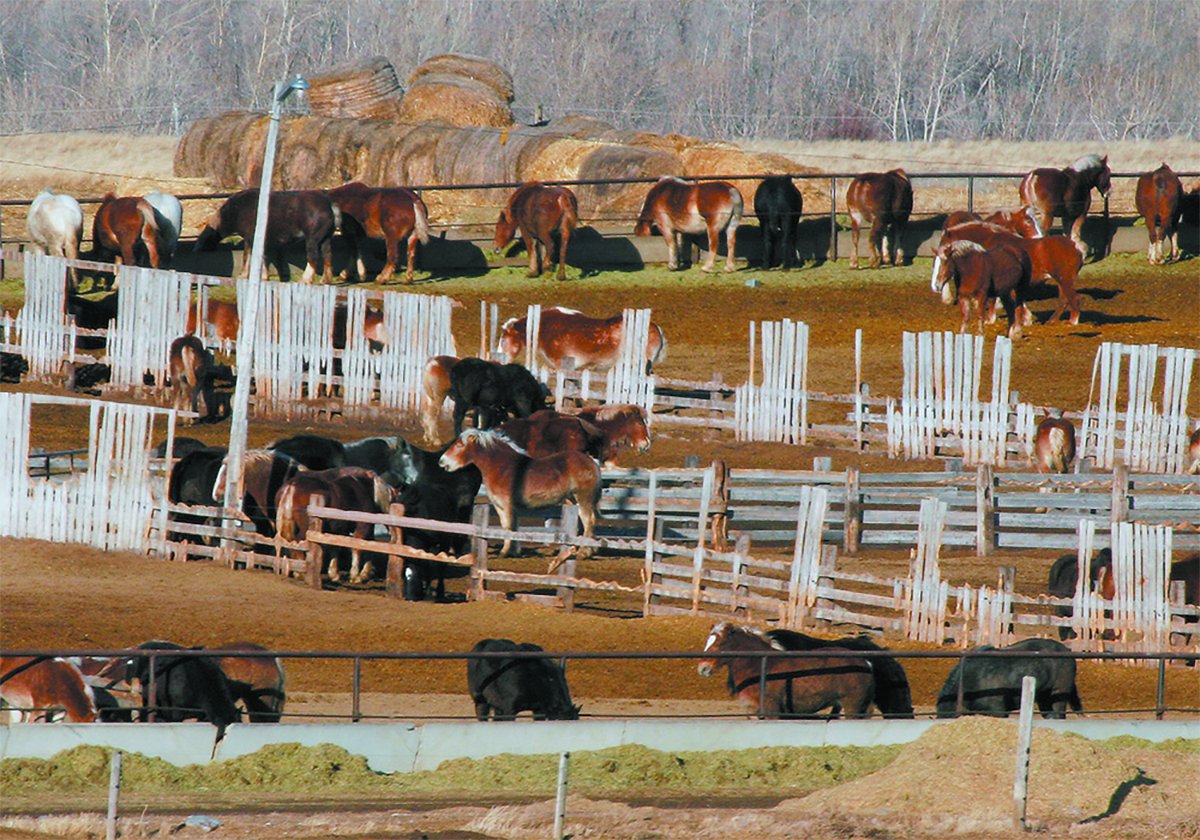LETHBRIDGE, Alta. – Scientists with different specialties are starting to unite in efforts to study the effects of stress on farm animals.
“Unfortunately, there is no completely objective means to measure stress levels,” said Agriculture Canada researcher Gerry Mears. “Stress response is a very complex thing, behaviorally and physiologically.”
The animal physiologist told the national beef science seminar held in Lethbridge in November that researchers have known for more than 30 years that weaning, transporting, branding, castrating and handling animals causes stress and subsequent weight loss and possible illness. Animals’ body reactions can affect their ability to thrive and eventually produce good meat.
Read Also

Canada’s slaughter horse industry lacks transparency
The lack of clear reporting and public access to data keeps the industry largely hidden, leaving questions about humane treatment and traceability unanswered.
Until recently, scientific disciplines worked alone, but now research teams include animal physiologists and behaviorists to learn what the combined effects of animal stress mean.
The team has studied lambs to assess their reactions to procedures like castration and tail docking. Tests were also run on psychological stress factors to measure the impacts of weaning, isolation and restraint.
Hormone levels in the blood were measured before and after the procedures, which discovered higher levels of cortisone and beta-endorphin after castration. Stress levels were even higher in isolated animals.
Shearing also creates high stress levels in both experienced and inexperienced sheep.
Experienced sheep actually showed more stress than inexperienced animals. Up to now, people assumed older animals experienced less stress because they appeared calmer during shearing.
A transportation experiment on steers showed even short trips upset animals. Steers wearing heart monitors were loaded on a truck at Lethbridge and taken for a three-hour ride.
The test found increased heart rates and higher stress hormone levels after they were unloaded. Levels came down about an hour afterward as animals had a chance to drink and rest.
This type of stress causes animals to lose weight, commonly known as shrinkage. Stress is also known to change meat quality, resulting in dark meat that is dry and tough.
The transportation code of practice allows for up to 48 hours of transportation. However, it is known such a lengthy trip is highly stressful and could sicken animals.
Al Schaefer of Agriculture Canada’s Lacombe Research Centre has used less invasive means to measure stress, including observation and infrared thermography.
The infrared test measures heat distribution on the animal’s body. Stressed animals lose heat and salivary cortisol, a hormone released during times of stress.
Calves undergo significant amounts of stress at weaning time. They are taken from their mothers, castrated, implanted, inoculated and shipped with strangers to new environments.
This creates incremental stress and it is difficult for them to calm down. They may become ill and may never grow as well as they should.

















